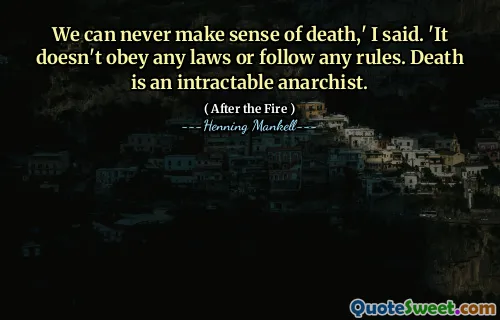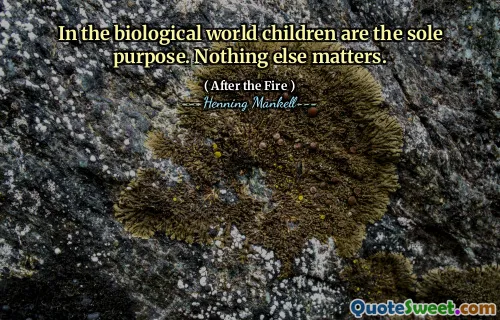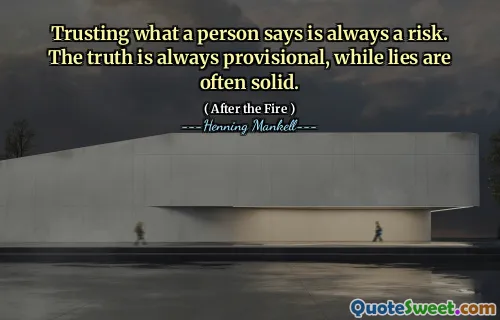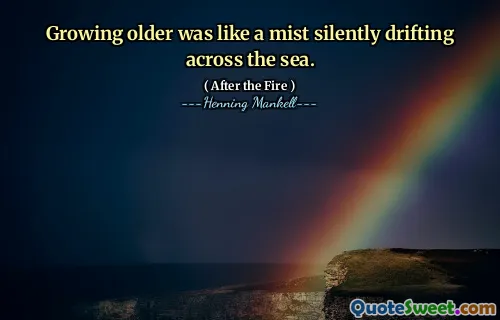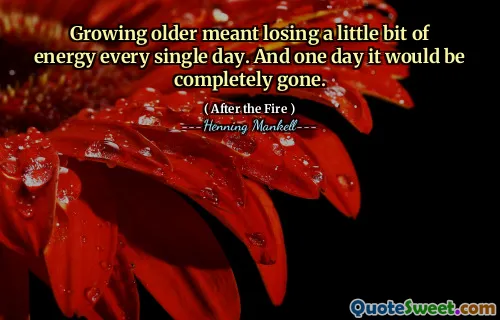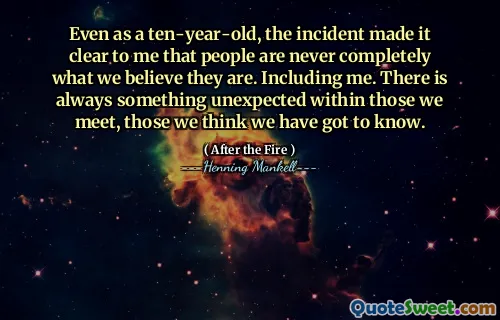
We're not allowed to learn to die,' Jansson said. 'What do you mean?' 'In the past death was a part of life. Now it's completely separate. I remember I was six years old when my grandmother died. Her body lay on a door in the parlour at home. There was nothing odd about that. Death was a natural part of our lives. Not any more. We no longer learn to die in this country.
In Henning Mankell's book "After the Fire," a character reflects on the changing perception of death in modern society. The character, Jansson, laments that learning about death and embracing it as a natural part of life has become uncommon. This shift separates death from the everyday experiences of life, creating a sense of estrangement from a phenomenon that was once intimately familiar.
Jansson's memories of his grandmother's passing illustrate a time when death was openly acknowledged and integrated into life. He recalls how her body was present in the home, surrounded by family, signifying that death was a shared experience rather than a taboo. This contrast highlights the contemporary discomfort surrounding death, suggesting that society has moved away from recognizing its inevitability and has stopped teaching us how to cope with it.
